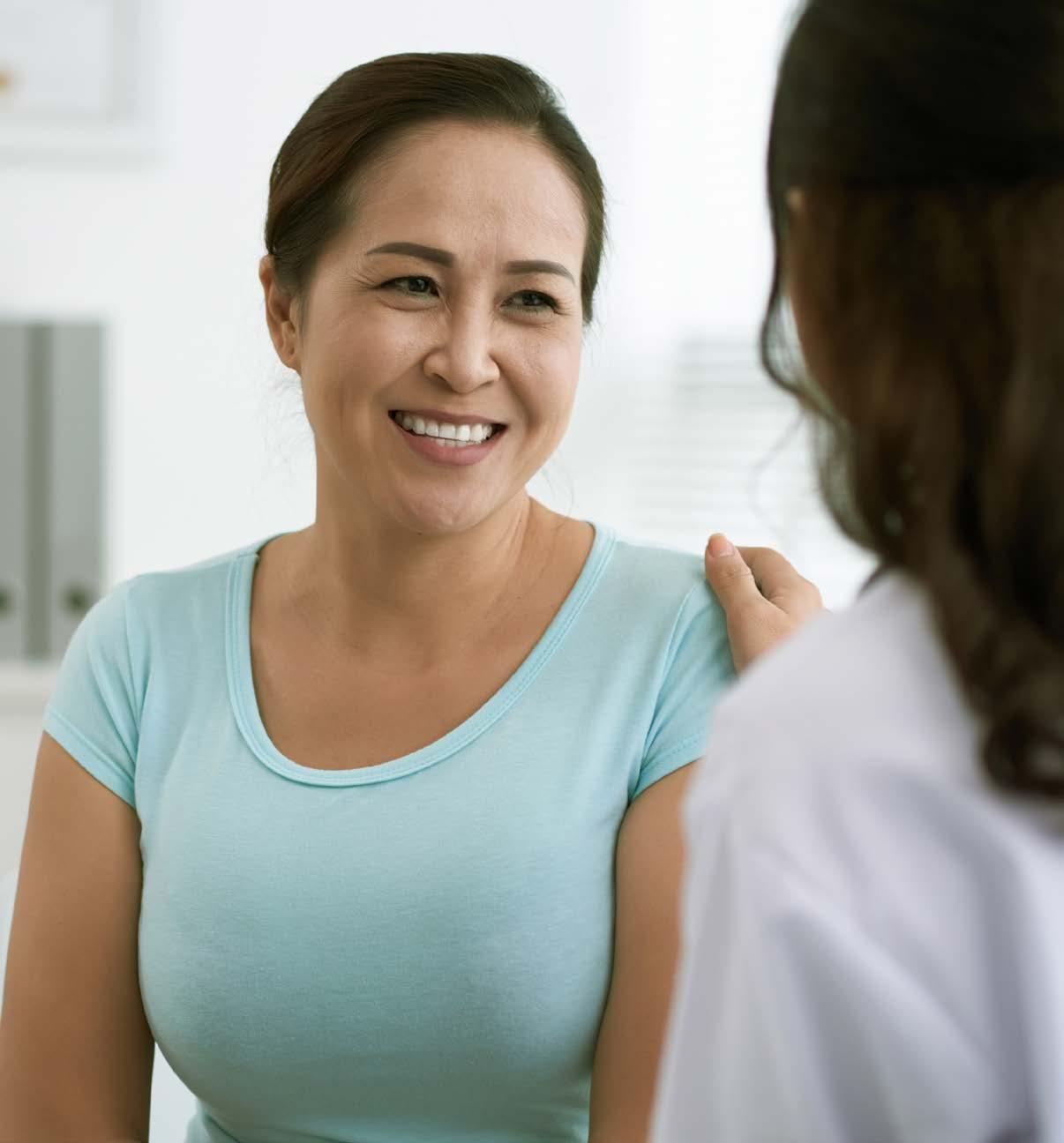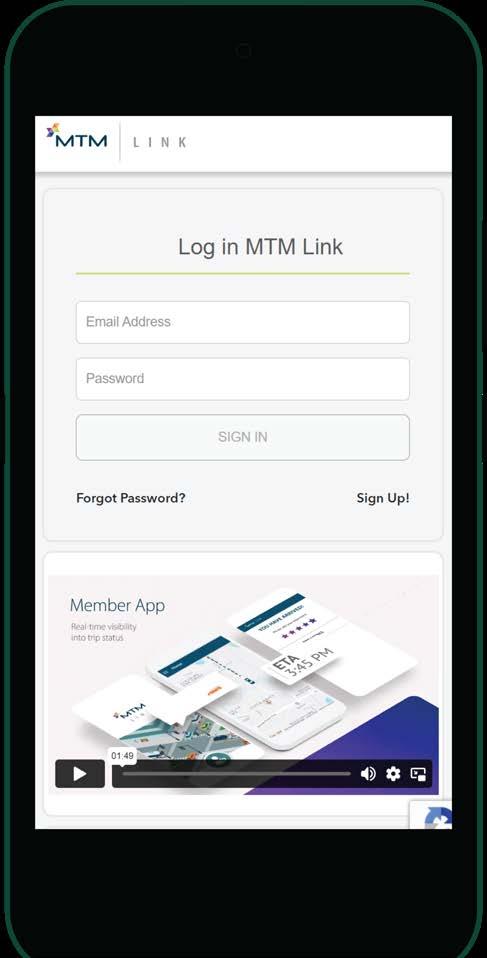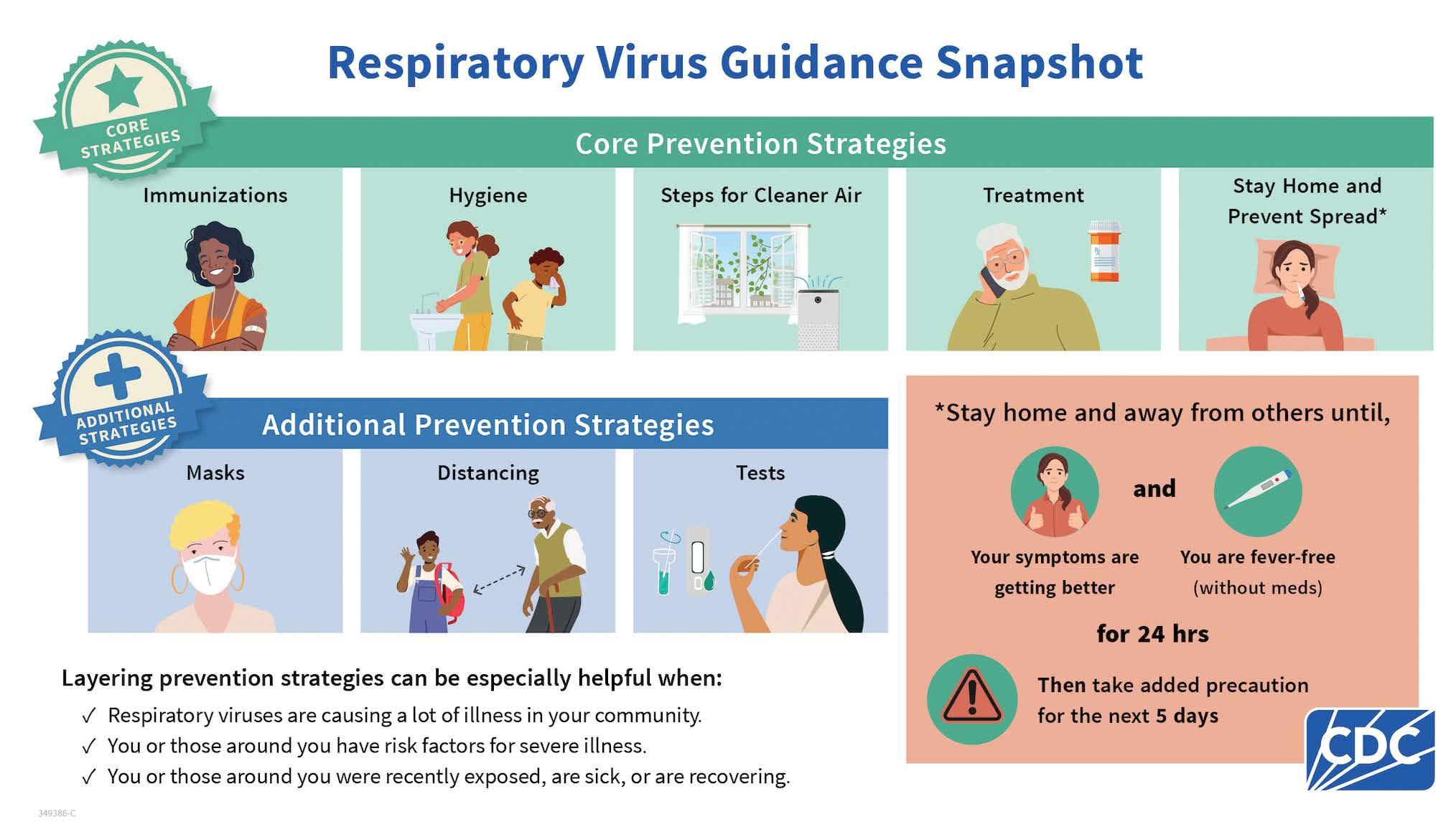






At Community First, we understand that it takes more than just doctor’s visits and medical care to lead a healthy, happy, and fulfilled life. Good health and well-being start at home, with our families, and in our communities.
Community First is more than “just” a health insurance provider; we were founded right here in San Antonio almost 30 years ago as our area’s only non-profit health plan option, and we invest in dozens of local organizations that share in our vision and mission—to improve the lives of individuals and families whom we serve...from pregnant women and their babies to senior citizens, children and adults with special needs, and everyone in between.
Our Community Partners And How We Give Back
San Antonio is the seventh largest city in the country. There is a lot of need in our community and the best way to touch as many lives as possible is to invest in the many local non-profit and charitable organizations across San Antonio and the surrounding counties who are in the position to provide resources and services directly to the populations they serve and make REAL impact. Here are just a few of the organizations we support and the causes they champion.
Food Insecurity
1 in 8 or nearly 4 million of our fellow Texans experience food insecurity. Children, seniors, veterans, people with disabilities, and working families are among those affected in every Texas county, including the areas we serve. Here’s how we are fighting insecurity in our community, both indirectly and directly.
• San Antonio Food Bank: We proudly support the San Antonio Food Bank through continued sponsorships.
• Meals on Wheels San Antonio: Meals on Wheels provides free, fresh, hot meals to senior citizens and disabled neighbors who may be housebound or have difficulty getting hot meals every day. This is another great organization that we support.
• Community First Food Pantries: We have set up 50+ freestanding food pantries across our service area, where anyone in need can take what they need to feed themselves and their families. These food pantries are weatherproof, mostly outdoors, and easily accessible to all. Our community partners, people in the neighborhood, and Community First staff
regularly add food and other non-perishable items to these pantries.
Find a Community First food pantry near you located at schools, churches, parks, and other local organizations. Anyone can take the food they need or donate non-expired, non-perishable food items. People can also donate new school supplies, baby items, and hygiene products by placing them inside the food pantry of their choice.
Being physically active is one of the best ways to stay fit and live well. Here are some of the ways we promote physical well-being locally:
• Zumba Classes: We offer free virtual and inperson Zumba classes for adults and kids.
• I-Cycle Bike Safety Classes: Community First helps to host monthly I-Cycle bike safety courses at various locations around the city. Our outreach team also provides giveaways, course completion certifications, and information about our plans at these events.
• Free Family Nights at the DoSeum: We love the inclusive, accessible DoSeum, an interactive museum where kids of all abilities can participate in the grand adventure of learning about the world around us! Every First Monday night of the month, families can enter for free. We are a proud sponsor of this event.
• San Antonio FC: Our beloved San Antonio FC hosts free youth clinics in the summer across San Antonio, sponsored by Community First. At these clinics, kids learn to dribble, protect, pass, and score with guidance from a San Antonio FC team member.
• San Antonio Zoo: San Antonio Zoo is a place for enrichment, education, physical activity, and joy! We are delighted to sponsor the newly reimagined “Birds of the World” realm.
• Senior Appreciation Fiesta: Every year, we throw a fiesta for our senior citizens. Our Senior Appreciation Fiesta is a morning of health screenings, fun, snacks, games, giveaways,
and more! This is a free, family-friendly, indoor event with activities for all!
• Community First Blog: Every month, we share new blog posts to help our community find free fun events and giveaways for the whole family. We also work with Community First providers to share tips on staying healthy, physically and mentally.
• Any Baby Can: Any Baby Can supports and empowers parents, healthy families, and child development. We are the annual co-presenting partner for the Walk for Autism and support their Bereavement Program along with case management initiatives. They also host one of our food pantries.
• Latched Support: Latched provides needed support to pregnant women, infants, and children through education and needed supplies. They offer a pregnancy program, parenting program, car seat safety classes, material assistance program, and a community-based Doula program. Community First sponsors Latched Baby Showers. Latched also hosts one of our food pantries.
• Big Brothers/Big Sisters of South Texas: Big Brothers and Big Sisters serve as mentors, advocates, resources, and guides to children in need. We sponsor events and provide financial support. We support five annual signature Big Brothers/Big Sisters events: Flag Football, Bowl for Kids, Graduation School Success, Summer Reading Campaign Kick-off, and Fall Fest. They also host one of our food pantries.
• ASPIRE Classroom of the Month Awards: We are proud to sponsor the ASPIRE Classroom of the Month. Through this program, together with TAMU-SA, we award $1,000 monthly to outstanding educators in South Bexar County who go above and beyond to create a collegegoing culture. The award is for these teachers to invest back into their classes and students.
• Dream Big Scholarship Fund: We are a proud sponsor of the Dream Big Scholarship Fund, established to assist at-risk minority youth in reaching their higher education goals, nurturing
leadership skills, and empowering them to pursue their dreams.
• Intercultural Development Research Association (IDRA)—Valued Youth Partnership Program: The IDRA Valued Youth Partnership Program is a dropout prevention program that pairs junior high and high school students in at-risk situations with elementary school students in similar situations. In this program, the older children become tutors to the younger children. The older children learn self-discipline and improve self-esteem through this program, for better academic and personal outcomes.
• Project QUEST—Health Careers Workforce Grant: Project QUEST has a mission of helping people get individualized workforce training for in-demand careers, including health care, information technology, and skilled trades. Community First provides $25,000 in scholarships through the Pathways Scholarship program so that our Members or their parents can get certified as a Certified Nurse Aid, Medical Billing and Coding Specialist, or Pharmacy Tech.
• Hispanic Leadership Development Foundation—Latina Leadership Institute: Through this six-month educational program, Latina Leadership Institute participants learn leadership skills and the focused civic knowledge


they need to put into practice so they can apply or run for public service positions at the local, state, and national level.
• Spina Bifida Texas: We proudly sponsor the FashionABLE fashion show to enable children with disabilities to dress themselves and feel independent. The show features accessible clothes designed by high school design students and children with spina bifida.
• The Brighton Center: The Brighton Center uplifts our local children with disabilities and their families and educators. Community First is proud to sponsor their mission of providing families, caretakers, and teachers of Special Education children with Special Education Support Services. With their new Special Education Video Library, sponsored by Community First, The Brighton Center is able to expand its services to all families and caretakers with an internet connection. The video library features short, family-friendly videos covering important topics such as Special Education Law, Benefits of Early Childhood Special Education, and Admission, Review, and Dismissals (ARD) & Individual Education Programs (IEP).
• Yanaguana Garden at Hemisfair: Community First is a proud sponsor of inclusion programming and wheelchair-accessible playground equipment at Yanaguana Garden.
• Morgan’s Inclusion Initiative: We happily sponsor Morgan’s Inclusion Initiative, part of Morgan’s Wonderland, to provide inclusive and Ultra-Accessible™ experiences to people of all ages and abilities.
• Wheelchairs 4 Kids: Community First sponsors inclusive adventures including Wheely Camps for Wheelchairs 4 Kids at Morgan’s Wonderland. Our sponsorship covers the cost of attending Wheely Camp, so the families don’t have to worry about paying for it.
• Children’s Association for Maximum Potential (CAMP): CAMP provides recreational opportunities for individuals with medical conditions or disabilities and their brothers and sisters; a needed break for family members; leadership development for high school students/young adults; and hands-on educational
experiences for health care professionals. We sponsor Community First Members who attend CAMP each year.
• Project MEND: Project MEND repairs medical equipment and assistive technology to provide it to people of all ages with disabilities who cannot afford the items they need or have gaps in their insurance coverage. This empowers our neighbors in need to better manage their disability and be more mobile. Community First is a sponsor of Project MEND.
• Down Syndrome Association of South Texas (DSASTX): DSASTX empowers and supports people with Down Syndrome and their families with resources and community engagement. Community First happily sponsors their annual Walk & Stroll event.
We support our LGBTQ+ neighbors, their families, and allies through donations and program sponsorships for these support organizations:
• Fiesta Youth: Fiesta Youth serves LGBTQ+ teens, young adults, and their allies by creating safe spaces for events, training, and programming that support our youth and grow together as a community. We are honored to support their mission of safety and inclusion by committing to $10,000 in scholarships for local, collegebound, LGBTQ+ students. Learn more in our Community First x Fiesta Youth video.
• Pride San Antonio: Pride San Antonio organizes and hosts events throughout the year that instill pride, celebrate unity, embrace diversity, and recognize the contributions of the Gay, Lesbian, Bisexual, and Transgender community, including the annual Pride Bigger Than Texas Night Parade, Pride Week, and Pride and Gay sports leagues/events. As an Alamo-level sponsor, Community First supports Pride San Antonio and their celebrations and networking and educational events.
• San Antonio LGBT Chamber of Commerce: The San Antonio LGBT Chamber is where LGBTQ+ and ally business owners, professionals, and consumers can direct economic power
to businesses that support the LGBTQ+ community. Community First is a proud member of the San Antonio LGBT Chamber of Commerce.
We support many organizations that work to lift up our community, and we are always looking for new partnerships in the San Antonio-area.
Here are some specific ways to discover more about our partners and work in the community:
1. To see a more extensive list of our partnerships and learn more about the work we do in the community, you can visit our Community Impact web page.
2. Keep an eye on our Events calendar to find out how to attend a class or event near you (or online).
3. Apply for sponsorship/scholarship for your organization.
4. Read our Community First Blog for useful health, fitness, and community events.
We live here; we give here! We believe in wholeheartedly supporting the unique needs of our diverse community which is why our proceeds go directly towards improving the community we are a part of. We are proud of and grateful for the impact our philanthropic contributions have made.

Did you know that Community First has a family of dedicated programs designed to help improve your health, manage a chronic condition, or experience a healthy pregnancy…all at no cost?
On the following page, you will find a list of our current Health & Wellness Programs and the program goals of each. We want to provide you the added support, resources, and guidance you need to feel better, live healthier, and enjoy your life to the fullest.
Asthma Matters
Asthma Management Program
• Education about the causes or triggers of asthma
• Tips to achieve normal or near-normal lung function
• Advice on how to participate in physical activity without symptoms
• Ways to decrease the frequency and severity of flare-ups
Qualifying Members may be able to get a $10 gift card for completing asthma education, a $10 gift card for receiving a flu shot, and up to $80 in gift cards for completing home visits with San Antonio Kids BREATHE ($35 for the first visit, $10 for the second visit, and $35 for the third visit).*
Diabetes in Control
Diabetes Management Program
• Diabetes education, self-management, and healthy cooking classes
• Individual and group fitness classes
• Tips to better talk with Providers
• Referral to YMCA Diabetes Prevention Program (including a complimentary four-month YMCA membership*)
Qualifying Members may be able to get up to $60 in gift cards for Members with diabetes participating in the Diabetes in Control: Diabetes Management Program (includes a $20 gift card for completing the Community First diabetes assessment, a $10 gift card for completing diabetes educations, a $10 gift card for receiving a dilated eye exam, and a $10 gift card once every six months for submitting A1C results).*
Healthy Expectations Maternity Program
• Prenatal and postpartum education
• Information about labor and delivery
• Breastfeeding education
• Tips for newborn care
• One-on-one contact with a Health Educator
• In-person or virtual Mommy & Me Baby Shower
Qualifying Members may be able to get a total of $150 in gift cards ($30 each for the following: Completing the Community First Health Assessment, agreeing to receive health education text messages, attending all required pre- and postnatal checkups, receiving a flu shot during pregnancy, and attending a Mommy & Me Baby Shower. There is also a $30 reimbursement for birthing classes.)
Healthy Mind
Behavioral Health Program
• Help determining the type of behavioral health assistance needed
• Information to help choose the right professional counselor or doctor
Healthy Living
Lifestyle Management Program
• One-on-one contact with a Health Educator
• Educational materials
• Care Management for high-risk Members
• Referral to YMCA Y Weight Loss Program
Healthy Heart
Blood Pressure Management Program
• One-on-one contact with a Health Educator
• Educational materials
• Case Management for high-risk Members
How to Join
Find the right Health & Wellness Program for you by taking our online Health Assessment.
1. Visit our website CommunityFirstHealthPlans. com/Health-and-Wellness-Programs or log in to the Member Portal.
2. Contact one of our Health Educators for help at 210-358-6055 or email healthyhelp@cfhp.com.
Other Important Information
• All Health & Wellness Programs are provided at no cost.
• You can opt out of a Health & Wellness Program at any time.
Community First strives to give the best quality services to our Members. If you have any questions about our Health and Wellness Programs, please contact Population Health Management at 210-358-6055 or email healthyhelp@cfhp.com.
* Limitations and restrictions apply. For eligibility requirements, please call 210-358-6055 or email healthyhelp@cfhp.com.
If you have diabetes, it’s possible to experience a diabetes emergency, despite being careful and doing everything right. High or low blood sugar levels can lead to an emergency situation. Below are some symptoms to look out for and what to do if you notice any of them.
Who can be affected?
Those who need insulin or take other diabetes medicines that can cause low blood sugar
Any person who has diabetes
How fast does it happen? Rapidly, over minutes or hours Slowly, over hours or days
• Fatigue, shakiness
• Headache
• Hunger
• Cold, clammy skin; sweating
What are the symptoms?
What should you do?
• Sudden double vision or blurred vision
• Pounding heart, confusion, irritability; person may appear drunk
• Loss of consciousness
• If the person loses consciousness, call 911. If the person is conscious, have the person eat or drink something that contains sugar. If symptoms don’t improve, call the doctor immediately.
• If you’ve been taught how to give glucagon to a person who is having a low blood sugar emergency, do so. Always make sure the glucagon has not expired.
• Frequent urination
• Intense thirst
• Blurred vision
• Signs of ketoacidosis, such as: rapid breathing; fruity-smelling breath; hot, flushed, dry skin; restlessness or drowsiness; loss of appetite; belly pain or vomiting; confusion
• Loss of consciousness
If there are signs of ketoacidosis, call the doctor immediately. If the person loses consciousness, call 911.
If you are unsure about the cause of the diabetic emergency in a person who uses medicine, have the person eat or drink something that contains sugar, like glucose tablets, hard candy, honey or sugar dissolved in water, fruit juice, or a soft drink with sugar. Do not give an unconscious person anything to eat or drink. Note: Symptoms may vary. If you have diabetes, ask your doctor what your safe blood sugar range is.
When you have diabetes, you are at risk of developing other health problems, called complications. This is especially true if your blood sugar levels stay high. Over time, high blood sugar can damage many parts of your body. It can lead to a variety of problems, including problems with your:
• Eyes. High blood sugar levels may cause temporary blurred vision. Blurred vision, floaters, or flashes of light may be a sign of diabetic retinopathy, which can lead to severe vision loss. Having diabetes also puts you at risk for cataracts and glaucoma.
• Heart and blood vessels. High blood sugar damages the lining of blood vessels. This is called hardening of the arteries, or atherosclerosis. It can lead to stroke, heart attack, peripheral arterial disease, or heart failure.
• Nerves. High blood sugar levels can damage nerves throughout your body. This damage is called diabetic neuropathy. There are different types of neuropathy. They may be caused by damage to nerves that sense things like pain or touch or that control things like your heartbeat, digestion, or blood pressure. Nerve damage can be painful, especially in the feet.
• Feet and skin. You may have less feeling in your feet. This means that you can injure your feet and not know it. Common infections from blisters, ingrown toenails, small cuts, or other problems can quickly become more serious when you have diabetes.
• Kidneys. High blood sugar can damage tiny blood vessels in your kidneys that help filter waste from your blood. This kidney damage is called diabetic kidney disease (sometimes called diabetic nephropathy). You may not have any symptoms until the damage is severe. Then you may notice swelling in your feet or legs or all over your body.
INFECTIONS RELATED TO DIABETES
High blood sugar from diabetes can affect the body’s immune system. The immune system is the body’s natural defense system that helps fight infections. People with high blood sugar from diabetes can be more severely affected by common infections, such as influenza and pneumonia. They also are more likely to be infected with unusual organisms, such as Gram-negative bacteria or fungi.
You can help prevent or delay complications by keeping your blood sugar in a target range. You also need regular medical checkups to look for early signs of complications. If complications are treated early, the damage may be stopped, slowed, or possibly reversed.
DIABETIC RETINOPATHY
Diabetes can damage the small blood vessels in the retina, which is the part of the eye that sends images to your brain. This is called retinopathy, and it can lead to poor vision or blindness.
Retinopathy does not usually cause symptoms at first. When you do have symptoms, they can include blurred or distorted vision or having a hard time reading. You may have floaters, which are shadows or dark objects that “float” across your vision. You may see flashes of light. Because you may not have symptoms until retinopathy is severe, see your eye doctor on a regular basis. The sooner you know about it, the easier it is to treat it, and the more likely you are to prevent vision loss. Diabetic retinopathy has no cure, but controlling diabetes can help stop it from getting worse. If your retina is not badly hurt, laser treatment or surgery can help prevent more vision loss.
Over time, high blood sugar from diabetes can damage your nerves. This is called diabetic neuropathy. It can affect the following nerves:
• The nerves that give you the sense of touch, heat, and position, mainly those in your feet and legs. The longer the nerve is, the more likely it is to be damaged by diabetes. This can lead to serious foot problems, such as sores, infection, and bone and joint deformities. It is the most common form of neuropathy. Symptoms include:
» Tingling, tightness, or burning, shooting, or stabbing pain in the feet, hands, or other parts of the body.
» Numbness or less feeling, most often in the feet.
» Weakness and loss of balance and coordination.
• The part of the nervous system that you do not control. This includes the nerves that control your heart rate, blood pressure, body temperature, vision, digestion, and other functions. If these nerves are damaged, you may:
» Notice digestion problems like bloating, heartburn, or diarrhea.
» Sweat a lot at night or while eating certain foods. You may also sweat only a little, especially in your feet and legs.
» Not know when you have to urinate.
» Have sexual problems.
» Feel dizzy and weak when you stand up or sit up.
» Not know your blood sugar is low.
• One nerve or group of nerves. This can cause muscle weakness and pain, mainly in the wrist, thigh, or foot. It may also affect the nerves of the
back and chest and those that control the eye muscles. This rare form usually happens suddenly. You may:
» Have pain or weakness in one part of your body, such as a wrist, thigh, or foot.
» Have pain in and around one of your eyes, difficulty moving your eyes, and double vision.
There is no cure for diabetic neuropathy, but you can keep it from getting worse by keeping your blood sugar within a target range. Your doctor may suggest medicine or physical therapy for pain. Take good care of your feet to help avoid foot infections.
Diabetic kidney disease is kidney damage caused by having high blood sugar for a long time. This affects how the kidneys filter fluids, and it lets protein that should stay in the blood pass into the urine. If not treated, this can lead to kidney failure. To help find it early, your doctor may do tests that check how well your kidneys are filtering your blood and how much protein is in your urine.
You have no symptoms at first. A little bit of protein in the urine is the first sign of kidney damage. When your kidneys work poorly, your blood pressure may go up and you may have swelling, at first in your feet and legs. Medicine that lowers blood pressure and protects the kidneys can help. To prevent kidney damage or keep it from getting worse, eat healthy foods, exercise, limit alcohol, don’t smoke, and keep your blood sugar within a target range. Also, talk to your doctor or dietitian about how much protein is best for you.
Experts do not fully know how diabetes affects the heart. Many things can lead to heart disease,
including high blood sugar, insulin resistance, high cholesterol, and high blood pressure. But genetics and lifestyle may also affect a person’s risk. For example, if you smoke, you are at a higher risk for heart and blood vessel disease than someone who does not smoke. To help prevent or delay heart disease, take the medicine your doctor suggests, exercise, don’t smoke, control your blood pressure, and eat healthy.
The most important thing you can do is keep your blood sugar under control. To do this, take your insulin or other diabetes medicines as your doctor tells you, check your blood sugar level often, follow your diet for diabetes, exercise, and see your doctor on a regular basis. Seeing your doctor is very important because you may have no symptoms from these problems. The earlier you can treat them, the more likely you can avoid complications and prevent the problem from getting worse.
You CAN be successful in managing your diabetes. Community First is here to help. Our Diabetes in Control: Diabetes Management Program is a no-cost Health & Wellness program exclusively for Community First Members. This program helps you learn more about diabetes and empowers you to take control of your health. Join this nocost program today, and you may be able to get Value-Added Services like gift card incentives, a complimentary 4-month YMCA membership, home visits, and more.*
*Limitations and restrictions apply. For eligibility requirements, please call 210-358-6055 or email healthyhelp@cfhp.com
• Visit: CommunityFirstHealthPlans.com/ Health-and-Wellness-Programs
• Call: 210-358-6055
• Email: healthyhelp@cfhp.com
Community First Case Management services are also available to Members at no cost. Diabetes does not have to control your life. People who take an active role in learning about diabetes are the most successful in preventing or delaying diabetes complications. You can do it. We can help.
Source ©2007-2023 Healthwise, Incorporated. Current as of: February 28, 2023; Author: Healthwise Staff; Clinical Review Board: All Healthwise education is reviewed by a team that includes physicians, nurses, advanced practitioners, registered dietitians, and other health care professionals. Healthwise disclaims any liability for use of this information, which does not replace medical advice.

Vaccines are often associated with childhood, but did you know that vaccines are actually recommended throughout life, even into adulthood?
Protection provided by childhood vaccines wears off, so preteens and teens need additional vaccines that will extend that protection, preventing serious, sometimes deadly diseases like meningitis and HPV cancers.
The four recommended vaccines detailed on the next page provide that needed protection and are covered at no cost to Community First Members.
The United States’ long-standing vaccine safety system makes sure that vaccines are as safe as possible. Currently, the United States has the safest vaccine supply in its history. Millions of children safely receive vaccines each year.
The most common side effects are typically very mild, such as pain or swelling at the injection site. Serious side effects are rare. Tell your child’s doctor or nurse if your child has any serious allergies, including allergies to yeast, latex, or eggs before they receive any vaccines.
Provides Protection Against:
• Bacteria that causes meningococcal disease.
• Infections of the lining of the brain and spinal cord, as well as bloodstream infections.
• Long-term disabilities that often come with surviving meningococcal disease.
How many doses are needed?
• Two doses of the meningococcal shot are recommended for preteens and teens.
• All preteens should receive the first dose between 11 and 12 years old (by their 13th birthday) and their second dose at 16 years old.
What else do I need to know?
Teens may also get a MenB shot, preferably at ages 16-18 years. Multiple doses are needed for best protection. To learn more, talk to your child’s doctor.
Provides Protection Against:
• Infections that can lead to six types of cancer.
• Abnormal cells that can lead to cancer (precancers) and the lasting effects of testing and treatment for these precancers.
How many doses are needed?
• The CDC recommends two doses of the HPV shot for adolescents ages 11 to 12 years. If the second dose is given less than five months after the first dose, a third dose is needed.
• If the first dose is given after the 15th birthday, three doses of the HPV shot should be given over a six-month period.
What else do I need to know?
HPV is considered the most common sexually transmitted infection in the United States and the cause of almost all cervical cancers in women. Nearly 4 out of every 10 cases of cancer caused by HPV happen among men. The HPV vaccination can prevent over 90% of HPV cancers.
Provides Protection Against:
• Tetanus, diphtheria, and whooping cough (pertussis).
• Painful muscle stiffness from tetanus.
• Development of a thick coating in the back of the nose or throat from diphtheria that can make it hard to breathe or swallow.
• Violent coughing fits from whooping cough.
How many doses are needed?
One dose of the Tdap booster shot is recommended. What else do I need to know?
There are two vaccines that help protect children against tetanus, diphtheria, and whooping cough: DTaP and Tdap. These shots do not offer lifetime protection. Booster shots are needed to keep up protection.
Provides Protection Against:
• Serious illness and hospitalization among children.
• High risk of developing serious complications.
How many doses are needed?
One dose of the flu shot is recommended every year in the fall/winter.
What else do I need to know?
Even if your preteen or teen is healthy, they can still get very sick from the flu and spread it to others. Flu season can begin as early as September and extend through May. It takes about two weeks after getting a vaccine to build protection against the flu.
Diseases that Vaccines Prevent | Childhood Vaccines | CDC Sources
About Vaccines for your Children | Childhood Vaccines | CDC
If you’re a Traveling Farmworker, we can help:
Schedule your child’s next Texas Health Steps checkup, vision screening, or dental appointment before you leave
Get medicine and medical supplies quickly
Get vaccines or refill prescriptions before moving
Find a mental health services
Find a doctor where you are traveling to
We can let doctors know you or your child needs to be seen quickly before you leave the area. Our Member Services Representatives speak both English and Spanish. If you speak a different language, we’ll get an interpreter for you free of charge
Call us toll-free at 1-800-434-2347
Monday through Friday, 8 a.m. to 5 p.m.
Questions? We can help.
Get in-person, bilingual help at our Avendida Guadalupe Community Office. Make an appointment online at CommunityFirstHealthPlans.com or call 210-227-2347.
Need a ride to the doctor?
STAR and STAR Kids Members and their families can get a ride to a doctor’s appointment or pharmacy at no charge.
Call 1-888-444-0307 toll-free Monday through Friday, from 8 a.m. to 5 p.m. or visit MedicalTrip.net to schedule a ride.
Traveling farmworkers move to another area or establish a temporary home in order to work in agriculter/farming.
Traveling farmworkers often move in order to:
Prepare, irrigate, or spray fields
Plant, harvest, sort, or pack produce, grains, nuts, or other agricultural products
Take care of chickens, ducks, turkeys, cows, goats, sheep, fish, clams, etc.
Process or pack food
Work with dairy products
Children of Traveling Farmworkers may qualify for gift cards after getting checkups and vaccines, and other ValueAdded Services like prescription discounts and low-cost dental services for uninsured family members.*
*Limitations and restrictions may apply. For eligibility requirements, call 210-358-6055 to speak with a Health Educator.


The flu shot is the best way to protect yourself and your loved ones from the flu.


Flu shots are provided at no cost to Community First Members and are recommended for adults, children, and babies who are 6 months or older. The flu shot is safe and effective for most people, including pregnant women.
You can get your flu shot at many convenient locations, including:*
• Target

Children ages 6 months to 8 years getting vaccinated for the first time, or who have only previously received one dose of flu vaccine, or whose flu vaccination history is unknown, should get TWO doses of the flu vaccine this season. Your child’s health care provider can tell you if your child needs two doses.
Some Community First Members may be eligible to earn gift card rewards for getting their flu shot, including:
• Pregnant CHIP Perinate, STAR, STAR+PLUS, and STAR Kids Members ($30 gift card)
• CHIP, STAR, STAR+PLUS, and STAR Kids Members who participate in Asthma Matters: Asthma Management Program ($10 gift card)
• CHIP and STAR Members ages 6-24 months who get the full series of the flu vaccine and complete the Community First Health Assessment ($25 gift card)

• Your primary care provider’s office
• H-E-B
• Walmart
• Walgreens
• CVS
Limitations and restrictions apply. For eligibility requirements, please call 210-358-6055 or email healthyhelp@cfhp.com

If you have questions about the flu shot, please contact your primary care provider. Community First also has many helpful flu resources available to you, including:
• Flu Website: A website dedicated to sharing credible flu shot updates and references, flu shot locations, and local flu shot drive-thru events: CommunityFirstHealthPlans.com/Flu
• Member Services Department: Call 1-800-434-2347 to speak with a trusted Member Services representative.
• Email Assistance: Email healthyhelp@cfhp.com to reach our knowledgeable Health Educators.







and instruct you on where to go for
Our nurses are bilingual and can help you in English or Spanish or arrange for translation services. Experienced nurses are ready and waiting to help. Call any time, day or night, 24/7, 365 days a year.
Examples of questions the Nurse Advice Line can help answer:
“My foot is swollen. What should I do?”
“My daughter has a fever. Do I need to go to urgent care or the ER?”
“A bee stung my son on the arm. What medicine can I give him?”
For life or limb-threatening emergencies, always call 911. For mental health emergencies or suicidal thoughts, call 988 to speak with a trained counselor on the National 24/7 Suicide & Crisis Lifeline.


Case Management services help patients move smoothly through the health care system. Community First Case Managers work closely with patients, their family members, their caregivers, and their health care team to improve their health and quality of life and take control of their own health and well-being.
Community First Case Management services are available to ALL Community First Members at no cost. Our Case Management teams look at each Member’s mental, social, and physical well-being and provide help and guidance from experienced professionals, including:
• Nursing
• Social work
• Home health care
• Mental health care
Case Management teams also provide the Member with resources to help them get the best care possible, connecting them to the right providers in the right setting at the right time.
Members who need Case Management have access to a full Case Management team and their own dedicated Case Manager. Case Managers are the first point of contact for Members. The relationship between Member and Case Manager is built on trust, mutual respect, and good communication.
Depending on the Member’s needs, the Case Manager may also work with the Member’s doctors, caregivers, family, and other health care team members. The team talks with each other and works together to improve the Member’s overall health.
If you would like to learn more about Case Management services, call Community First Population Health Management at 210-358-6050 or email chelp@cfhp.com.
If you or someone you care about is having a tough time with their feelings, it can be hard to know what to do. This guide will help you know what a mental health crisis is, how to help someone, and where to find support. Remember, it’s okay to ask for help. There are many ways to get help for a mental health crisis – and there’s no wrong way. You know yourself or your child best so seek the help or support that will work best for you.
• Hearing voices that tell them to hurt themselves or others.
• Feeling like they need help right away, even if others don’t see it.
• Anything that YOU think is a mental health crisis and needs some kind of immediate intervention or additional support.
It can be scary to help someone in a crisis, but you can make a big difference. Here are some steps you can take:
YOU KNOW YOURSELF AND YOUR CHILD BEST SO SEEK THE HELP OR SUPPORT THAT WILL WORK BEST FOR YOU.
A mental health crisis is when someone is in immediate danger of hurting themselves or someone else and needs help right away. Here are some signs to look for:
• Thinking or talking about suicide or wanting to end their life.
• Thinking or talking about hurting someone else.
• Taking actions to end one’s life or hurting someone else.
• Hurting themselves in a way that needs medical help.
1. Ask Questions: Don’t be afraid to ask if they are thinking about suicide. You might say:
» “Are you thinking about suicide?”
» “When was the last time you thought about ending your life?”
2. Be Supportive: Respond with empathy and validate their feelings. You could say:
» “You’re not alone. I’m here for you.”
» “I can’t imagine how hard this is, but I care about you and want to help.”
3. Check Their Safety: Make sure they are in a safe place. If there are any dangerous things around, like firearms, sharp objects, or medications, try to remove them.
4. Find Help: If you’re unsure how to help, find someone who can. You can:
» Call a school counselor.
» Call 988 together.
» Take them to a mental health hospital.
If you are having a mental health crisis, or if someone you care about is, there are many ways to find help. Here’s what you can do:
• Call or Text 988: This is the Suicide & Crisis Lifeline. Using the 988 Lifeline is free. When you call, text, or chat the 988 Lifeline, your conversation is confidential. The 988 Lifeline provides judgment-free care. Connecting with someone can help save a life. Learn more at 988LifeLine.org/get-help/what-to-expect. They are there to help you.
• Call Your Mental Health Provider: You might be able to see your mental health provider soon, but it’s good to have a backup plan in case you can’t get an appointment right away.
• Call Community First: We have a crisis hotline that’s open all the time.
» For STAR Kids/STAR+PLUS Members –1-844-541-2347
» For all other Community First Members –1-877-221-2226
• Get Help Where You Are: You can call your local Mental Health Authority (LMHA) for help that will come to you:
» Bexar County: 210-223-7233
» Guadalupe County: 800-841-1255
» Atascosa and Wilson Counties: 800-543-5750
» Bandera, Comal, Kendall, and Medina Counties: 877-466-0660
• Go to a Mental Health Hospital: If you need to talk to someone right away, you can go to a psychiatric facility. Here are a few in our area:
» Clarity Child Guidance Center (for kids and teens up to age 17) 210-582-6412
» San Antonio Behavioral Healthcare (for teens and adults) 210-541-5300
» Laurel Ridge Treatment Center (for teens and adults) 210-491-9400
IT CAN BE SCARY TO HELP SOMEONE IN A CRISIS, BUT YOU CAN MAKE A BIG DIFFERENCE.
• Call 911: If you feel like you’re in immediate danger, call 911 and let them know it’s a mental health crisis. Ask for a mental health officer if possible.
• Go to the ER: If there are medical issues or a medication overdose, you need to go to the emergency room for medical care first. After you are stabilized, the emergency room will transfer you to a psychiatric facility for assessment and treatment. But remember, you don’t need to go to the ER for a mental health crisis without medical needs. It’s one of many choices you have.
Remember, it’s okay to not be okay!
Community First cares about you and your mental health. Please reach out for help when you need it!
Sources: What to Do In a Crisis | NAMI, Suicide Prevention National Institute of Mental Health (NIMH), Suicide Prevention Resource Center, Home #BeThe1To
Please note that Community First does not provide financial incentives (rewards) to physicians or employees (who conduct utilization reviews) for issuing denials of coverage, that result in underutilization, or creating barriers to care or service.
MEMBER TIP SHEET
If you or your child went to the hospital for mental health care, we’re so glad that you took that step. But remember, after leaving the hospital, it’s important to visit a mental health provider within 7 days. This helps you stay healthy and get the support you need.
Seeing a behavioral health provider after leaving the hospital can make a big difference! It helps people feel better and stay out of the hospital in the future. At Community First, we think this visit is very important. Plus, if you go to your followup visit on time, you can earn a $25 gift card!*
The sooner you have your follow-up visit, the better. Try to see a mental health provider within 7 days after leaving the hospital. You can see different types of providers, like:
• Psychiatrist
• Psychologist
• Licensed clinical social worker (LCSW)
• Credentialed psychiatric nurse or mental health clinical nurse specialist (PMHNP)
• Marriage and family therapist (LMFT)
• Professional counselor (LPC)
• Physician’s assistant certified to practice psychiatry
• Community mental health center
Here are some services that can help you during your follow-up:
• Meeting with a mental health provider
• Getting help with medications
• Community support teams and communitybased treatment services
• Peer support services
• Intensive outpatient programs
• Treatment for substance use disorders
• Assessments or screenings for mental health
• Telehealth or phone visits
• Electroconvulsive therapy
• Plan Ahead: Talk to the hospital staff before you leave to set up follow-up visits. They’re there to help!
• Get Support: If you have a Community First Case Manager or Service Coordinator, they can help you schedule visits or schedule a ride to and from your visit at no cost.*
• Schedule a Visit: If you already have a mental health provider, try to book a visit within 7 days to check on medications and other resources.
• Share Your Information: When you call, let them know when you left the hospital so they can help you faster.
• Bring Your Papers: Don’t forget to take your hospital discharge papers to your appointment!
• Contact Community First: If you need help picking a doctor or making an appointment, call Community First Member Services:
» STAR Kids and STAR+PLUS Members: 1-855-607-7827
» STAR and CHIP Members: 1-800-434-2347
» University Community Care Plan Members: 1-888-512-2347
» Medicare Advantage Members: 1-833-434-2347
» University Family Care Plan and Commercial Members: 1-800-434-2347
If you or your child are feeling very upset or thinking about hurting themselves, please reach out for help right away! You can:
• Call or text the Suicide and Crisis Lifeline at 988. You can also visit 988lifeline.org to chat online.
• Community First has crisis hotlines you can call anytime:
» STAR Kids and STAR+PLUS: 1-844-541-2347
» All other Community First Members: 1-877-221-2226
It’s a great idea to save these numbers in your phone, just in case.
Remember, you’re not alone, and there’s always help available!
*Limitations and restrictions apply.
If you have Medicaid or CHIP, let your Case Manager know after your follow-up visit to get your $25 gift card.* Learn more about this value-added service by calling 210-358-6055 or email healthyhelp@cfhp.com.
Community First provides free aids and services to people with disabilities, such as qualified sign language interpreters and written information in other formats (i.e., large print, audio, accessible electronic formats), to help you communicate effectively with our organization. Community First also offers free language services, including qualified interpreters and information written in other languages, to people whose primary language is not English.
Community First works to make sure that all Members receive the same quality care. If you are in need of these services, please contact Community First Member Services at 1-800-434-2347. All aids and services are free of charge.

Need a ride to your next health appointment?
As a Community First STAR, STAR Kids, STAR+PLUS, Medicare Advantage, and Medicare Advantage D-SNP Member, you can get non-emergency transportation at NO COST to and from the doctor, dentist, hospital, or drugstore.
Community First works with MTM, Inc. to provide curb-to-curb transportation for our Members.
There are two ways to arrange non-emergency medical transportation (NEMT).
1. CALL MTM DIRECTLY 1-888-444-0307 (TTY 7-1-1)
Monday through Friday, from 8:00 a.m. to 5:00 p.m. Information is available in both English and Spanish. Please call at least 48 hours before your appointment.
Use the MTM Link Mobile App or Member Portal (different than the Community First Member Portal)

For help after hours or on weekends, call: Where’s My Ride: 1-888-444-0824
Trips do NOT include ambulance trips.

NEMT services include:
• Passes or tickets for travel by train, bus, or air
• Curb-to-curb transportation
• Mileage reimbursement
• Travel expenses (for Members under age 20)
• Travel expenses for attendants
When you call MTM, please be ready to provide.
• Medicaid or Medicare ID number
• Name, address, and phone number of the place you are going
• The medical reason for your visit
An important way to keep your family healthy is by staying up to date with health checkups. These checkups, also called physical exams or well visits, consist of the following:
• Head-to-toe exam
• Lab tests
• Hearing and vision screenings
• Developmental tests
• Any necessary vaccines to prevent illnesses like measles, whooping cough, and other serious diseases



Health checkups begin at birth and are on a set, specific schedule until age 3. If you have Medicaid or CHIP, these checkups are called Texas Health Steps or CHIP Well-Child Checkups. After age 3, it is important to see your primary care provider (PCP) once a year on or near your birthday.
As a valued Community First Member, your yearly health checkup is 100 percent covered by your plan, meaning it costs you nothing. These visits are a great chance to ask questions about you or your family’s health while establishing a relationship with your PCP built on openness and trust.
Remember, the best medicine is preventive medicine!
Here are a few more reasons why you should schedule your yearly health checkup:
• Review changes that have happened in your health and identify risk factors.
• Check your vitals, including blood pressure and heart rate.
• Check your cholesterol and blood sugar.
• Review and renew prescriptions.
• Screen for cancer, diabetes, or thyroid issues.
To learn more about pediatric and adult preventive care, visit CommunityFirstHealthPlans.com/ Wellness-Checks. Here you will find:
• A list of covered health screenings
• Telemedicine options
• What to expect during your checkup
• How to prepare for your checkup
• A checkup checklist including the top five questions to ask your doctor
• A list of recommended immunizations by age
Still have questions? Email healthyhelp@cfhp.com or call 210-358-6055 to speak with a Community First Health Educator.
Women are often the caretakers in families, caring for the needs of others before caring for themselves. Making time to go to the doctor’s office can be difficult for women, and often harder for moms. Remember this: you can’t pour from an empty cup! You need to be physically, mentally, and emotionally healthy before you can take care of anyone else.
Community First has worked to remove obstacles so that women can get the care they need. We’ve created programs to provide women the health education, screenings, and pregnancy support needed to keep going strong. Now is the time to make yourself and your health care a top priority — because you are worth it.
Community First is dedicated to helping expecting mothers experience a healthy pregnancy, promoting full-term deliveries, and providing support for highrisk pregnancies. Pregnant women with underlying conditions have a higher risk of complications. We offer caring pregnancy support to give both mom and baby a healthy start.
We invite Members to join our no-cost Healthy Expectations Maternity Program, which includes:
• Personal guidance
• Nurse support to manage pregnancy risks
• Prenatal and postpartum education
• Education on preterm labor
• Information about labor, delivery, and postpartum care
• Breastfeeding support
• Tips for newborn care
The American Cancer Society reports that breast cancer is the second most common cancer in American women, after skin cancer. There is about a 1 in 8 chance a woman in the United States will develop breast cancer. Here are a few ways for you to minimize your risk of breast cancer:
Routine Mammograms
• Preventive screenings reduce women’s breast cancer risk by an estimated 15%.
• Women ages 40 to 54 should get a mammogram every year.
• Community First covers routine mammograms and once-a-year health checkups.
• Exercising regularly can reduce your risk of breast cancer and all cancers.
• Moderate exercise increases lymph circulation, improves white blood cell status, reduces stress hormones, and improves metabolism.
• Exercise can also increase longevity, improve mood, and improve sleep quality.
Nutrition
Proper nourishment is another major ingredient in women’s health. When enough time and energy are dedicated to dietary lifestyle, it can greatly improve health, reduce cancer-risk, and benefit overall wellbeing.
Sources
Cancer.org/Cancer/Breast-Cancer/About/ How-Common-Is-Breast-Cancer.html
Cancer.gov/About-Cancer/CausesPrevention/Risk/Diet
As a valued Community First Member, you have the right to a second opinion from a qualified health care professional. If an appropriate professional is not available in-network, the organization will arrange for you to obtain a second opinion out-of-network at no more cost to you than if the service was obtained in-network.
As a child enters adulthood, they need to learn how to care for their own medical needs. A health care transition is a process that helps youth and young adults who have disabilities or special health care needs prepare for the adult health care system.
Teenagers may be afraid to speak openly with their pediatrician. During a health care transition, it’s important that doctors and families work together to make sure the young adult feels comfortable and informed and has the resources and skills they need to live as healthy and independently as possible.
Health care transitions are more successful when a young adult’s wants, needs, and values are considered. Open, honest conversations between the young adult, their doctors, and their family members are a very important part of the process.
Although the health care transition process is different for each person, doctors recommend starting to plan by age 12. This Member Tip Sheet includes steps you can take to help your child feel confident, supported, and prepared to take control of their health care.
The following are important topics to discuss with your child to help prepare them for the transition:
• Health conditions/diagnoses: Discuss their conditions and formal diagnoses. Make sure they understand how to manage them.
• Scheduling care: Show them how to schedule doctor visits. During appointments, encourage
them to participate and ask questions. They should also understand how to consent to medical care and what consent means.
• Arranging transportation: Community First offers Medicaid Members rides at no-cost to and from health care appointments and the pharmacy. Explain how these services work and how to schedule them.
• Managing health needs away from home: Explain the importance of sticking to a routine. Especially when it comes to taking medication, when traveling or away from home. Discuss where to go for emergency care and what to do if they are admitted to the hospital.
• Navigating the health care system: Encourage them to keep track of their health records, the medications they are taking, how to refill prescriptions, etc.
• Understanding health insurance: Talk about their health plan benefits and tell them who to call if they have questions. If their health insurance plan will change when they enter adulthood, explain this process.
• Making healthy choices: Remind them that as an adult, it’s their responsibility to make healthy choices and avoid risks for their own well-being.
Ask your doctor about when and how to prepare for a health care transition. A Community First Health Care Transition Specialist can also help your family through this process. Learn more by calling 1-800-434-2347 (STAR/CHIP) or 1-855-607-7827 (STAR Kids/STAR+PLUS).
Source: GotTransition.org/Resource/?HCTTimeline-Parents-Caregivers
QUESTIONS TO ASK YOUR DOCTOR ABOUT TRANSITIONING TO ADULT HEALTH CARE
QUESTIONS TO ASK YOUR DOCTOR ABOUT TRANSITIONING TO ADULT HEALTH CARE
When do I start having private time at my visits to become more independent in my own health care?
At what age will I transition to an adult doctor for care?
What do I need to learn about my own health to prepare for adult care?
Do you have suggestions on a care notebook or medical summary?
Can you help me create an emergency care plan?
What do I need to know about consent when I turn 18? Where can I get more information about help making health care decisions?
Do you have suggestions on what doctors to transition to?
The National Committee for Quality Assurance (NCQA) defines the Quality Improvement Plan (QIP) as “a comprehensive document, or a set of interconnected documents, that describes, in plain language, the QI program’s governance, the scope, measurable objectives, structure and responsibilities.” Every year in January, Community First Health Plans, Inc. and Community First Insurance Plans (Community First) develop a quality plan. At the end of the year, Community First takes time to review the results of the plan. The evaluation helps to identify successes and look for improvement opportunities. It also helps Community First develop quality improvement activities for the following year. This helps Community First move towards our goal of continuous improvement, problem resolution, and delivery of the highest-quality health care and services in a safe manner.
HIGHLIGHTS
• Community First transitioned from JIVA, our previous medical management system, to Clinical Care Advance (CCA). CCA integrates with the core administrative system (QNXT), to gain greater operational efficiencies. Some of the efficiencies include:
» Improved system performance and reduction of manual processes
» A better understanding of our Members and providers through data analysis resulting in improved service
» Improved productivity tracking and management.
• In October 2023, Community First Insurance Plans earned NCQA Interim Health Plan Accreditation for the Marketplace/Exchange line of business.
• In July 2024, Community First received First Full Health Plan Accreditation. This survey not only includes the review of policy and program plans but of reports and materials to ensure Community First is following the program plans and policies.
• Enhanced Member and provider portal features were deployed that improved the content strategy to lead Members and providers to the digital communication platforms that were most relevant.
• Distribution of Member and provider monthly e-newsletters, website traffic, and portal accounts significantly increased.
• The once-a-year Consumer Assessment of Healthcare Providers and Systems (CAHPS®) Member satisfaction surveys revealed Members are satisfied with Community First.
» Medicaid Child respondents rated overall satisfaction with the health plan, health care, and rating of the personal doctor at the 95th percentile nationally.
» Commercial Adult respondents rated overall satisfaction with the health plan, health care, personal doctor, and specialist above the 75th percentile nationally.
» In 2024, Community First Insurance Plans initiated the Qualified Health Plan (QHP) Enrollee Experience Survey for the Marketplace /Exchange line of business. The survey includes all of the questions in the core CAHPS® Medicaid Adults survey plus additional questions added to collect needed data specific to this population. In the baseline year of the QHP, nine of the ten measures rated above the 71st percentile when compared to Press Ganey Book of Business (BoB).
• Pursue NCQA Health Equity, Health Equity Plus Accreditation, and the Medicaid Module
• Successful re-procurement of the STAR, STAR Kids, and CHIP contracts, and successful operational launch of the STAR+PLUS contract
You can learn more details about Community First performance on measures of clinical care and member satisfaction by viewing the Measurement Year 2023 HEDIS, 2024 CAHPS, and QHP summary in this newsletter.
“
The QIP helps Community First move toward our goal of continuous improvement, problem resolution, and delivery of the highest-quality health care and services in a safe manner. ”
The Consumer Assessment of Healthcare Providers and Systems (CAHPS) is a survey of Member experience. It measures satisfaction with their care through a rating of four main categories:
1. Overall health plan
2. Overall health care provided
3. Overall satisfaction with the Member’s personal doctor
4. Overall satisfaction with care given by the Member’s specialist These measures capture information which cannot be gathered through claims and medical record reviews.
The Community First goal for the 2024 survey was to reach and maintain at the 90th percentile as defined in NCQA’s current quality compass or higher by incrementally moving the rate to the next percentile each year till the goal is reached (e.g., from the 25th percentile to the 33rd percentile).
The table below provides a summary of the areas of strength in Member satisfaction:
The goal for Community First is to continue to improve its delivery of quality care and service in a safe manner. We welcome recommendations from our Members, physicians, and other providers.
If you received the CAHPS survey in the mail this spring, thank you for taking the time to complete it. We value your participation. If you have a suggestion for an area of improvement, please contact Member Services at 1-800-434-2347.
Effectiveness of Care Measures
Effectiveness of Care measures focus on the quality of care Members received in the previous year. Measures are compiled using claims and medical record information.
The chart below lists key areas where Community First scored in the 50th to 90th percentile of the
National Committee of Quality Assurance (NCQA) when compared to all the health plans in the United States that submitted HEDIS data in measurement year 2023. Quality measures for Medicaid and CHIP membership focused on well-child and adolescent visits and prenatal care. Some of these HEDIS measures were also used in the administration of the physician incentive program.
As a valued Community First Member, you have direct access to certain specialists. This means that a referral from your PCP or prior authorization from Community First as a condition to receiving services from in-network specialists is not required. This allows you to save valuable time and get the care you need more quickly.
Community First Members have direct access to the following:
Women’s Health specialists, including, but not limited to:
• Gynecologist
• OB/GYN
• Certified Nurse Midwife
Routine and preventive health care services, including, but not limited to:
• Prenatal care
• Breast exams
Behavioral health care services, including, but not limited to:
• Outpatient behavioral health services, including
When it comes to your overall health and well-being, your primary care provider (PCP) should always be your first point of contact. However, you may need to see a specialist to treat more complex or chronic medical conditions.
first assessments and individual, family, or group counseling
If you have special health care needs or use LongTerm Support Services (LTSS), you also have direct access to specialists as appropriate for your condition and identified needs. Community First works with Members to identify those with special health care needs.
Please Note: Direct access to a specialist does not prevent Community First from asking for or requiring notifications from specialists for data collection purposes. University Community Care Plan Members do not need a referral to see any in-network specialist.
For a list of health care services that may require prior authorization from Community First, please review your plan documents located at CommunityFirstHealthPlans.com/Members. Just click on your health plan name and select Member Resources from the drop-down menu.
You can also call Member Services if you have any questions about direct access, referrals, or prior authorization. We are here to help.

There are many treatments available for behavioral health conditions. Knowing where to start can be difficult. It’s important to work with your child’s doctor to find the right treatment. Community First can also help connect you to care.
Behavioral health professionals recommend psychosocial care as the first-line of treatment option for children and teens diagnosed with conditions such as attention-deficit/hyperactivity disorder (ADHD) and disruptive and aggressive behavior. Psychosocial care can include:
• Behavioral interventions
• Psychological therapies
• Skills training
• Other treatments
The decision to start antipsychotic medication to treat your child’s behavioral health condition should be made with your child’s doctor. Together, you should review and carefully consider the possible risks and benefits of medication. Psychosocial care, like therapy, should keep going as a part of your child’s treatment plan.
If your child is prescribed antipsychotic medication, it’s important to give them as prescribed, in the safest and most effective manner for your child. Medications like Abilify (aripiprazole), Zyprexa
(olanzapine), and Risperdal (risperidone), can have potentially serious side effects. According to the Centers for Medicare & Medicaid Services (CMS), more than 75% of children and teens on Medicaid are taking antipsychotic medications in a way that is not FDA approved.
• Find a counselor for your child. Make sure your child feels safe with and trusts their counselor. If you need help finding a counselor, ask your child’s doctor or call Community First Member Services. You do not need a referral to see a behavioral health specialist, like a counselor.
• Teach your child different ways to manage their condition. Encourage good self-care like getting enough sleep, eating healthy food like fruits and vegetables, and being active. Work with your child on various ways to manage strong feelings (like deep breathing, playing with a pet), or doing something creative they enjoy (like making art or music). Set a good example for your child by working with their counselor or taking parenting classes.
• Schedule an appointment within 15 days of your child starting a new prescription to monitor for side effects. Talk to your child’s doctor about any side effects that you or your child notice. This is extra important if your child is taking multiple antipsychotics at once.
» Watch your child for signs of excessive or new drowsiness, dizziness when moving, blurred vision, rapid heartbeat, sensitivity to the sun, skin rashes, and menstrual problems for girls.
» Work closely with your doctor to routinely monitor your child’s weight, blood sugar level, and lipid level.
» Be aware that prescribing information for all atypical antipsychotics warns against their use in pediatric patients with a history of seizure disorders. This is because these medications may lower your child’s seizure threshold.
• Get regular lab work to monitor side effects. Your child’s doctor will likely recommend regular lab work to set up a baseline and review metabolic indicators to make sure appropriate management of side effects. It’s important to take your child to complete the lab work. Some antipsychotic medications can increase the risk of significant weight gain, metabolic changes, and other possible side effects. You should also discuss the implications for future physical health concerns, including obesity and diabetes.
If your child is talking about suicide, self-harm, violence against others, or experiencing a mental health crisis, a substance use crisis, or any other kind of emotional distress, get help immediately.
• Call the National Suicide and Crisis Lifeline at 988.
• Call the Community First Behavioral: Health Crisis Line 24 hours a day, 7 days a week:
» STAR+PLUS/STAR Kids: 1-844-541-2347.
» All Other Community First Members: 1-877-221-2226.
Help is available 24 hour a day, 7 days a week, 365 days a year at no cost. Consider saving these important numbers in your phone. You can also text 988 or go to 988lifeline.org for more information or to connect with a trained professional who can help.
• National Alliance on Mental Illness (NAMI) Teen and Young Adult Resource Directory
• National Institute of Mental Health (NIMH) Mental Health Information
• Bexar County Behavioral Health Resource Directory
• Family Service Mental Wellness and Behavioral Health
Sources
CMS Atypical Antipsychotic Medications: Use in Pediatric Patients
Please note that Community First does not provide financial incentives (rewards) to physicians or employees (who conduct utilization reviews) for issuing denials of coverage, that result in underutilization, or creating barriers to care or service.
Community First is proud to now offer the STAR+PLUS Program — a Texas Medicaid-managed care program for adults who have disabilities or are age 65 or older.
We know switching health plans can be confusing. We are ready to address your questions and needs as you transition from your previous health plan to Community First.
After joining our plan, you’ll receive a Community First Member ID card and a welcome packet in the mail. This packet will have important facts about your STAR+PLUS benefits and how to get help.
If you need to get medicine but aren’t sure how, just call your drugstore and give them your Community First Member ID number. If you haven’t received your Community First Member ID card yet, use your Medicaid ID number. Community First works with Navitus Health Solutions to process your prescriptions. Your pharmacy will just need the following information:
RxBIN: 610602 | RxPCN: MCD | RxGRP: CFG
To have your prescriptions mailed to you, call the following H-E-B pharmacy:
H-E-B Pharmacy
8300 Floyd Curl Drive San Antonio, TX 78229 Phone: 210-593-0291
We work closely with the Texas Health and Human Services Commission (HHSC) and many doctors, clinics, and hospitals to make sure you receive the health care you need. If you can’t find your doctor in our network, don’t worry! Community First will help add your doctor, so you can keep seeing them.

Community First offers extra benefits, called Value-Added Services, to STAR+PLUS Members.*
This includes:
• In-home respite care
• Gift cards for completing healthy actions
• Extra vision and dental benefits
• Fitness membership
• Access to rapid response services
• And more!
* Limitations and restrictions apply. For eligibility requirements, please call 210-358-6055 or email healthyhelp@cfhp.com.

If you had any authorizations (permissions) with your old plan, they are now in the Community First system. You can keep your scheduled visits. Our highest priority is that you do not experience any interruption in your care. Community First will work with your doctors — as well as with your previous health plan — to ensure you receive the care you need.
Every STAR+PLUS Member gets a Service Coordinator. This person will help you get the health care and support you need. You should have received a letter with their name and contact information. You will also receive a welcome call from them to introduce themselves to you and your family. If you have questions about Service Coordination or don’t know who your Service Coordinator is, please call us at 210-358-6403.
If you need a ride to a doctor’s visit, pharmacy, or anywhere you get health care services, we can help! Community First offers transportation services at no cost. You can call MTM at 1-888-444-0307 to schedule a ride, book online, or download the mobile app to your phone.
You can create a Member Portal account using your Community First Member ID number. The Member Portal is a secure website you can use to review your health plan coverage, change your primary care provider, and much more. If you need help creating an account or logging in, contact the Help Desk toll free at 1-877-814-9909.
We’ve put together some common questions about STAR+PLUS that can help you better understand your plan benefits and who to call if you need help. For general information about STAR+PLUS, visit our STAR+PLUS website or call Member Services at 1-855-607-7827. We are here to help.



Navitus Health Solutions is the Pharmacy Benefit Manager (PBM) for Community First. Navitus is responsible for administering your pharmacy benefits.
All Community First Members can review pharmacy benefits by logging into the Community First Member Portal.

Click on “My Health Plan” at the top right of your screen, then click on “Pharmacy Benefits.” You can find the following information on the Community First Member Portal:
• A list of covered medications (also known as a formulary) and other information, including:

» Drug tiers (how prescription drugs are divided into different levels of cost) and quantity limits (the highest amount of prescription drug that can be given to you by your drugstore in a period of time)
• Prior authorization forms and clinical criteria used for certain medications
• Information on how to ask for a formulary exception (a type of coverage determination)
• A list of network and specialty drugstores

Always keep a list of your prescriptions and any over-the-counter medications you are taking, including vitamins, supplements, and herbal remedies. Take this list to all appointments and review it with your provider at least once a year. Keeping an updated medication list is an easy way to ensure your health and safety.

LET’S TALK ABOUT OUR LEAST-FAVORITE SEASON
As the weather cools down and cold and flu season officially arrives, it’s important to protect yourself and your family from getting sick with things like common chest and throat infections. Here are some simple ways to stay healthy, straight from the Centers for Disease Control and Prevention (CDC).
• Use Soap and Water: Wash your hands often with soap and water for at least 20 seconds. This helps get rid of germs that can make you sick.
• Use Hand Sanitizer: If you can’t wash your hands, use hand sanitizer with at least 60% alcohol.
• Don’t Touch Your Face: Try not to touch your eyes, nose, or mouth, especially when your hands aren’t clean.
YOUR BODY
• Exercise: Being active helps keep your body strong and healthy.
• Eat Healthy Foods: Eat lots of fruits, vegetables, and whole grains to keep your immune system strong.
• Get Enough Sleep: Aim for 7–9 hours of sleep each night.
• Drink Water: Staying hydrated is important for your health.
• Get Your Flu Shot: The flu vaccine is the best way to protect yourself from the flu. Make sure to get one every year.
• Get an Updated COVID Shot: Getting vaccinated prevents severe illness and potentially lowers your chances of developing Long COVID.
• Get Your Respiratory Syncytial Virus (RSV) Shot: To prevent severe RSV disease, the CDC recommends either pregnant mothers or adults who are 60 and above get vaccinated.
• Get Tested: If you’re not feeling well, get tested for common chest or throat infections like COVID-19, RSV, Flu (Influenza), and Strep to get appropriate treatment from a doctor.
• Stay Home if You’re Sick: If you’re not feeling well, it’s best to stay home so you don’t spread germs to others.
• Stay Away From Sick People: Try to avoid close contact with people who are sick.
• Wear a Mask: Wearing a mask can help block germs, helping you breathe in fewer germs and spread fewer germs to others.

• Disinfect Surfaces: Kill germs by wiping down things that you touch a lot, like doorknobs and light switches.
If you have a bacterial infection—like strep throat— your doctor might prescribe antibiotics. But for colds and the flu, they won’t help. Antibiotics don’t work on viruses, only on bacteria. Here’s why you shouldn’t ask for antibiotics if you have a cold or the flu:
• Antibiotic Resistance: If you use antibiotics too much, the medicine might stop working against bacteria. This makes it harder to treat bacterial infections in the future.
• Side Effects: Taking antibiotics when you don’t need them can cause problems like an upset stomach or allergic reactions.
If you come down with a chest or throat infection, rest, drink water, and use over-the-counter medicine. But if you have trouble breathing, chest pain, or a high fever that won’t go away, see a doctor right away.
By following these tips, you can stay healthy, beat the cold and flu season, and avoid taking antibiotics. This way, antibiotics will work when they’re really needed.
This information is based on advice from the Centers for Disease Control and Prevention (CDC) and research on how to prevent common chest or throat infections, and when antibiotics are needed.
1. CDC updates and simplifies respiratory virus recommendations (2024) Centers for Disease Control and Prevention. Available at: CDC.gov/Media/Releases/2024/p0301-Resipratory-Virus (Accessed: 30 Aug 2024).
2. Respiratory virus guidance (2024) Centers for Disease Control and Prevention. Available at: CDC.gov/Respiratory-Viruses/Guidance/ Index.html (Accessed: 30 Aug 2024).
Do you have opinions about your health plan? Do you have ideas for improving your care? Do you have suggestions about making your plan work even better? Or do you simply want to know more about your coverage and benefits?
If you answered yes to any of these questions, please consider joining a Community First Member Advisory Committee.
We know you have options when it comes to choosing a health plan. We care about you and want to hear more about your experience with Community First. And because we are always looking for ways to improve, we need your input and ideas.
Community First Member Advisory Committees play an important role in helping us review and update our services and benefits. As part of a committee, you will get to meet and interact with other Members and Community First plan experts.
• Community First Members and their parent(s)/ guardian(s)
• Legal Authorized Representatives (LARs), caregivers, and advocates
• Financial rewards for attending committee meetings
• No-cost transportation to and from in-person meetings
• Opportunities to share ideas on how to improve access to care, Service Coordination, and the overall Member experience
• Honest, open questions and conversations with Community First staff and other Community First Members
• Committee meetings are held quarterly, for a total of four meetings per year.
• Members can choose to participate virtually or in person.
• Participants are expected to attend a minimum of three (3) meetings per year.
• You can find our 2025 meeting schedules online.
INTERESTED IN JOINING?
Please visit us online at CommunityFirstHealthPlans.com/Member-Advisory-Committees or call 1-800-434-2347 for more information.
Community First has partnered with Option Care Women’s Health® to help our Members experience a healthy pregnancy.
We understand that navigating pregnancy complications can be overwhelming. The experienced professionals at Option Care Women’s Health® offer personalized support and resources every step of the way. Whether you need expert medical care, emotional support, or practical guidance, Option Care works to ensure the best possible outcome for both you and your baby.
Nausea and Vomiting Hyperemesis Program™
Nausea and vomiting in pregnancy – known as hyperemesis gravidarum in severe cases –can happen in up to 80% of all pregnancies and is one of the leading causes of hospitalization during early pregnancy. Option Care can provide a portable medication pump, hands-on teaching, and ongoing support and education from a specialized care management team.
Diabetes in Pregnancy Program™
Diabetes in pregnancy can impact up to 14% of all pregnancies and can significantly affect both you and your baby. Option Care offers diabetes education and support, meal planning, blood sugar monitoring, and phone support from a nursing team.
Hypertension in Pregnancy Program™
High blood pressure – also known as hypertension – can happen in up to 10% of all pregnancies, often with subtle signs that may be difficult to notice. Option Care can help you understand symptoms, teach you how to properly check your blood pressure and check your urine for protein, and provide ongoing support and monitoring.

Option Care also offers home visits to provide care in a familiar place. Besides home visits, a 24/7 Call Center staffed by highly trained OB Registered Nurses is available to answer questions or concerns.
Option Care gives you access to experienced, high-risk OB Registered Nurses. These professionals know the specific risks and medical interventions that may be needed for both mother and baby, which a general OB nurse may not be fully equipped to handle.
Talk to your OB/GYN about Option Care. They can write you a referral to get these services. If you need help, please call Community First at 1-800-434-2347 or at the number on the back of your Member ID card.
A healthy mom = a healthy baby.

As we celebrate our 30th anniversary, we honor our deep-rooted commitment to the health and well-being of our local community. Thank you to our community for your trust and for allowing us to serve you and your loved ones. Together, we look forward to building a healthier future for all!
If you have diabetes, you need regular eye exams to prevent vision loss, including blindness. An annual eye exam is the only way to discover if you have diabetic retinopathy or other eye problems that can appear without a warning and lead to poor vision or even blindness.
Diabetic retinopathy is an eye problem that occurs when high blood sugar levels damage the blood vessels in the back of the eye. People with diabetes are at high risk of having diabetic retinopathy. Sometimes people don’t have symptoms until it’s too late to treat them.
Dilated eye exams with an eye doctor (ophthalmologist or optometrist) can help find diabetic retinopathy early.
A regular eye exam with pupil dilation is the only way to know if you have diabetic retinopathy. Your eye doctor needs to find it so they can start treating it. A dilated eye exam can also find cataracts and glaucoma. That’s why regular eye exams are so important, especially for anyone with diabetes.
An eye doctor (ophthalmologist or optometrist) must examine your eyes closely for changes or signs of eye disease. Dilated retinal eye exams are quick, easy, and painless and are a covered benefit for Community First Members.
When you go to an eye doctor for your dilated eye exam, here is what to expect:
1. First, they will ask you questions about your health and your family health history.
2. Then, they will give you an eyedrop in each eye to dilate them. Getting your eyes dilated means having your pupils enlarged so your doctor can see more of the back of your eye.
3. You will then sit down in front of a machine, where you will place your forehead and chin to keep your head stable.
4. Next, the eye doctor will examine your eye with different types of lights to see the back of your eye, the inside of your eyes, and your blood vessels.
5. Your doctor may also test your eye pressure with a quick puff of air blown from a machine into the eye.
Temporary side effects of dilation may include light sensitivity, blurred vision, and difficulty focusing.
A vision screening with your primary care provider or an eye exam when your eyes aren’t dilated isn’t the same. If you have diabetes, you need a full dilated eye exam done by an eye doctor.
If you have diabetes, your eye doctor will recommend how often you will need to have dilated eye exams. It’s important to follow their recommendation.
General guidelines from the National Eye Institute suggest getting a dilated eye exam every one or two years if:
• You have diabetes.
• You are age 60 or older.
• You are African American and 40 years or older.
• You have a family history of glaucoma.
What are the symptoms of diabetic retinopathy?
There are usually no symptoms of diabetic retinopathy until it starts to change your vision. Changes in vision can be a sign of serious damage to your eye. These changes can include:
• Floaters (when you see something “floating” in your eye)
• Pain in the eye
• Blurry vision (when everything looks unclear or cloudy)
• New vision loss
If you’re experiencing any of these symptoms, call your doctor right away.
I have diabetes. How can I prevent diabetic retinopathy?
Follow these tips to protect your eye health and vision:
• Keep your blood sugar in your target range by eating a variety of healthy foods, stay active, take your medicine exactly as prescribed, check your blood sugar as often as your doctor recommends.
• Eat a low-salt diet.
• If you smoke, quit or cut back as much as you can. Community First offers free resources that can help you quit.
• Avoid risky activities. These include things like weightlifting and some contact sports. They may trigger bleeding in the eye through impact or increased pressure.
• Talk to your doctor if you are pregnant or planning to get pregnant. Retinopathy can get much worse during pregnancy.
Everyone with diabetes deserves the education, support, and resources they need to manage symptoms and live well. Join our no cost Health & Wellness Program, Diabetes in Control, and you may be eligible to receive the following:*
• Up to $60 in gift cards for completing required education and screenings, including a dilated eye exam.
• Diabetes education classes
• Information on how to control your blood sugar
• Tips for talking to your doctor
• Blood sugar testing and supplies
• Remote temperature monitoring services (Podimetrics) to prevent diabetic foot ulcers and other complications
• Home visits
• Access to YMCA Diabetes Prevention Program that includes a free 4-month YMCA membership for two adults and up to 4 children.
*Limitations and restrictions apply. Contact a Community First Health Educator at 210-358-6055 to see if you qualify and to learn more about Value-Added Services.
To join the Community First Diabetes in Control: Diabetes Management Program, please visit CommunityFirstMedicaid.com, email healthyhelp@cfhp.com, or call 210-358-6055.
We can also help you find an eye doctor, make an appointment, and schedule no-cost transportation to and from your appointment. Call Member Services tollfree at 1-800-434-2347 or at the number on the back of your Member ID card.
1. American Diabetes Association (2023). Standards of medical care in diabetes—2023. Diabetes Care, 46(Suppl 1): S1–S280. Accessed March 15, 2023.
Current as of: April 30, 2024. Author: Ignite Healthwise, LLC Staff. Clinical Review Board. All Healthwise education is reviewed by a team that includes physicians, nurses, advanced practitioners, registered dietitians, and other healthcare professionals. © 2024 Ignite Healthwise, LLC. Healthwise, Healthwise for every health decision, and the Healthwise logo are trademarks of Ignite Healthwise, LLC. This information does not replace the advice of a doctor. Ignite Healthwise, LLC disclaims any warranty or liability for your use of this information. Your use of this information means that you agree to the Terms of Use and Privacy Policy. Learn how we develop our content. To learn more about Ignite Healthwise, LLC, visit webmdignite.com
2. Diabetic Retinopathy: Screening, Treatment, and TrendsAmerican Academy of Ophthalmology
3. Diabetic Retinopathy | National Eye Institute
What is cervical cancer?
Cervical cancer is a disease where abnormal cells grow on the cervix. The cervix is located at the bottom part of the uterus; it opens into the vagina.
What causes cervical cancer?
Human papillomavirus (HPV) is the main cause of cervical cancer. HPV can pass from one person to another during sex. Most people get HPV, but it usually goes away on its own. If it doesn’t go away, it can cause cancer. Anyone with a cervix can get cervical cancer, but you may be more likely to get it if:
• You become sexually active at an early age
• You smoke
• You are overweight or obese
What can I do to protect myself/my child?
• You have many sexual partners
• You have a weakened immune system
• You have a family history of cervical cancer
• Get vaccinated. Both girls and boys ages 11 to 12 should get vaccinated against HPV. They can receive their first HPV vaccine as early as age 9. Talk with your child’s Provider to learn more about HPV and how many doses of vaccine they should receive. The HPV vaccine is available to Members of Community First at no cost.
• Get a Pap test. Pap tests (Pap smears) are recommended every three years for women ages 21 to 29 and are covered under your Community First health plan. Women age 30 and older can consider Pap testing every five years if the procedure is combined with testing for HPV.
• Get an HPV test. HPV tests are recommended every five years for women ages 30 to 65. Sometimes you’ll get an HPV test at the same time as a Pap test — this is called co-testing.
Why is screening so important?
Screening tests can find abnormal cells that can be treated before they become cancer. The Pap test looks for precancers - cell changes on the cervix that might become cervical cancer if they are not treated appropriately. The HPV test looks for the virus (human papillomavirus) that can cause these cell changes.
When should I/my child get their first Pap test?
Start at the age of 21. If the test is normal, repeat it every three years. At age 30, if test results are normal, get a Pap test every three years and both a Pap and HPV test every five years. You no longer need to get screened if you are over 65 or your cervix was removed during surgery.
How do I schedule an appointment?
If you need help making an appointment or finding a doctor, call 210-3586055 or email healthyhelp@cfhp.com. You can also find an OB/GYN in our network and call them directly. Log into the Community First Member Portal or use our online Provider Directory at CommunityFirstMedicaid.com

Do I need a referral?
You do not need a referral to see an OB/GYN or to get a cervical cancer screening.
Can I get a ride to my appointment?
Community First offers non-emergency medical transportation at no cost to STAR, STAR Kids, and STAR+PLUS Members. Visit MedicalTrip.net to book a ride to get your cervical cancer screening.
Am I eligible for a gift card reward after I get my cervical cancer screening?
Community First STAR Members who get screening for cervical cancer and join our Healthy Living: Lifestyle Management Program will receive a $25 gift card. Limitations and restrictions apply. Learn more about this reward and other Value-Added Services you may be eligible for.
Where can I learn more about women’s health services covered by my plan and how to get care?
Community First is committed to the health and well-being of all women and girls in our community. Learn more about your access to a wide range of quality health services focused on the unique health care needs of women for every stage of life.
Community First also partners with Betty’s Co. to provide Members with women’s health care services in boutique mobile clinics in the San Antonio-area. This includes cervical cancer screenings. Find out more or call 210-572-4931.
Community First Health Plans, Inc. and Community First Insurance Plans (Community First) comply with applicable federal civil rights laws and do not discriminate on the basis of race, color, national origin, age, disability, sex, gender identity, or sexual orientation. Community First does not exclude people or treat them differently because of race, color, national origin, age, disability, sex, gender identity, or sexual orientation.
Community First provides free aids and services to people with disabilities to communicate effectively with our organization, such as:
Qualified sign language interpreters
Written information in other formats (large print, audio, accessible electronic formats, and other written formats)
Community First also provides free language services to people whose primary language is not English, such as:
Qualified interpreters
Information written in other languages
If you need these services, please contact Community First Member Services at the number on the back of your Member ID card or 1-800-434-2347. If you’re deaf or hard of hearing, please call 711.
If you feel that Community First failed to provide these services or discriminated in another way on the basis of race, color, national origin, age, disability, sex, gender identity, or sexual orientation, you can file a complaint with Community First Executive Director of Compliance & Risk Management by phone, fax, or email at:
Kethra Barnes
Executive Director of Compliance & Risk Management
Phone: 210-510-2607 | TTY: 711
Fax: 210-358-6014
Email: DL_CFHP_Regulatory@cfhp.com
If you need help filing a complaint, Community First is available to help you. If you wish to file a complaint regarding claims, eligibility, or authorization, please contact Community First Member Services at 1-800-434-2347.
You can also file a civil rights complaint with the U.S. Department of Health and Human Services, Office for Civil Rights, electronically through the Office for Civil Rights Complaint Portal, available at: https://ocrportal.hhs.gov/ocr/portal/lobby.jsf
You may also file a complaint by mail or phone at: U.S. Department of Health and Human Services 200 Independence Avenue, SW Room 509F, HHH Building Washington, D.C. 20201
Phone: 1-800-368-1019 | TTY: 1-800-537-7697
Complaint forms are available at: https://www.hhs.gov/civil-rights/filing-a-complaint/complaintprocess/index.html
Community First Health Plans, Inc. (Community First) y Community First Insurance Plans cumplen con las leyes federales de derechos civiles aplicables y no discriminan por motivos de raza, color, nacionalidad, edad, discapacidad, sexo, identidad de género, u orientación sexual. Community First no excluye o trata de manera diferente a las personas debido a su raza, color, nacionalidad, edad, discapacidad, sexo, identidad de género, u orientación sexual.
Community First proporciona asistencia y servicios gratuitos a personas con discapacidades para comunicarse efectivamente con nuestra organización, como:
Intérpretes calificados de lenguaje de señas
Información escrita en otros formatos (letra grande, audio, formatos electrónicos accesibles, y otros)
Community First también ofrece servicios gratuitos lingüísticos a personas cuyo idioma principal no es el inglés, como:
Intérpretes calificados
Información escrita en otros idiomas
Si usted necesita recibir estos servicios, comuníquese al Departamento de Servicios para Miembros de Community First al 1-800-434-2347. TTY (para personas con problemas auditivos) al 711.
Si usted cree que Community First no proporcionó servicios lingüísticos gratuitos o se siente que fue discriminado/a de otra manera por motivos de su raza, color, nacionalidad, edad, discapacidad, sexo, identidad de género, u orientación sexual, usted puede comunicarse con la directora de calidad y cumplimiento por teléfono, fax, o correo electrónico a:
Kethra Barnes
Director ejecutivo de cumplimiento y gestión de riesgos
Teléfono: 210-510-2607 | Línea de TTY gratuita: 711
Fax: 210-358-6014
Correo electrónico: DL_CFHP_Regulatory@cfhp.com
Si usted necesita ayuda para presentar una queja, Community First está disponible para ayudarlo. Si usted desea presentar una queja sobre reclamos, elegibilidad o autorización, comuníquese con Servicios para Miembros de Community First llamando al 1-800-434-2347.
Usted también puede presentar una queja de derechos civiles ante el departamento de salud y servicios humanos de los Estados Unidos de manera electrónica a través del portal de quejas de derechos civiles, disponible en: https://ocrportal.hhs.gov/ocr/portal/lobby.jsf También puede presentar una queja por correo o por teléfono al: U.S. Department of Health and Human Services
200 Independence Avenue, SW, Room 509F, HHH Building Washington, D.C. 20201
Teléfono: 1-800-368-1019 | Línea de TTY gratuita: 1-800-537-7697
Los formularios de queja están disponibles en: https://www.hhs.gov/civil-rights/filing-a-complaint/complaintprocess/index.html.
ENGLISH: ATTENTION: Free language assistance services are available to you. Call 1-800-434-2347 (TTY: 711).
SPANISH: ATENCIÓN: Si habla español, usted tiene a su disposición servicios gratuitos de asistencia lingüística. Llame al 1-800-434-2347 (TTY: 711).
VIATNAMESE: CHÚ Ý: Nếu bạn nói Tiếng Việt, có các dịch vụ hỗ trợ ngôn ngữ miễn phí dành cho bạn. Gọi số 1-800-434-2347 (TTY: 711).
CHINESE::注意:如果您使用繁體中文,您可以免費獲得語言援助服務.請致電 1-800-434-2347 (TTY: 711).
KOREAN: 주의: 한국어를 사용하시는 경우, 언어 지원 서비스를 무료로 이용하실 수 있습니다. 1-800-434-2347 (TTY: 711)번으로 전화해 주십시오.
ARABIC: رق م 1-800-434-2347
URDU:
(TTY: 711)
TAGALOG: PAUNAWA: Kung nagsasalita ka ng Tagalog, maaari kang gumamit ng mga serbisyo ng tulong sa wika nang walang bayad. Tumawag sa 1-800-434-2347 (TTY: 711).
FRENCH: ATTENTION: Si vous parlez français, des services d’aide linguistique vous sont proposés gratuitement. Appelez le 1-800-434-2347 (ATS: 711).
(TTY: 711)
PERSIAN:
(TTY: 711)
GERMAN: Wenn Sie Deutsch sprechen, stehen Ihnen kostenlos sprachliche Hilfsdienstleistungen zur Verfügung. Rufnummer: 1-800-434-2347 (TTY: 711).
GUJARATI:
1-800-434-2347 (TTY: 711)
RUSSIAN:
1-800-434-2347 (телетайп: 711).
JAPANESE:注意事項:日本語を話される場合,無料の言語支援をご利用いただけます. 1-800-434-2347 (TTY:711)まで、お電話にてご連絡ください.
LAOTIAN: ໂປດຊາບ:
ໂທຣ 1-800-434-2347 (TTY: 711).

We believe health care coverage should be easy and available for every child, parent, and member of your family... for every generation.
We offer health plans designed for:
» Expectant Mothers & Newborns
» Children, Teens, & Adults
» Children and Adults with Intellectual and/or Developmental Disabilities
» Senior Citizens MEDICAID
COMMERCIAL
MARKETPLACE